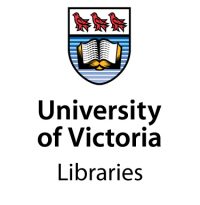UVic News recently announced that UVic ranks among the top performers in 10 fields, according to the 2019 Quacquarelli Symonds (QS) World University Rankings by Subject. To celebrate, we would like to feature some of our graduate research. Today, we feature a 2018 Faculty of Law Thesis*:
Whose water is it anyway? Indigenous water sovereignty in Canada: an Indigenous resurgence analysis of the case of Halalt First Nation v British Columbia
by Michelle Zakrison
Abstract:
Colonialism is ongoing in Canada and continues to affect Indigenous-state relations in a number of political and social areas, including water governance. Few other studies link colonial and decolonizing concepts to Indigenous water governance including discussions of power as well as structural and political assumptions, which speak to systemic factors and barriers to increased Indigenous water sovereignty. The purpose of this study is to undertake an in-depth decolonial analysis of the dynamics occurring in a legal water management dispute between an Indigenous community and the Canadian state. More specifically, the goal of this investigation is to identify how ongoing colonial factors affect the Halalt First Nation’s sovereignty over their waters. To this end, the research question is: Using an Indigenous resurgence (IR) analysis, what does the Halalt First Nation v British Columbia (Minister of the Environment) (Halalt v BC) caselaw reveal about the state of Indigenous water sovereignty in Canada? I employ a case study methodology where I analyse the Environmental Assessment (EA) and legal court case of Halalt v BC. I seek to provide a decolonial perspective, so in this study I use an IR theoretical framework. I collect data through interviews with ten participants including three Band Council staff members involved in the Halalt v British Columbia EA and court case study. I analyse the findings using three Indigenous resurgence themes of transfer of power from the state to an Indigenous community, increased respect and use of Indigenous worldviews, and Indigenous self-determination in light of the primary data I collected via key informant interviews and case study participants. The data reveals that there was no evidence that Indigenous resurgence is taking place in the case study as per Halalt participants’ experience of the case study nor the other participants’ opinion of the case study. In this thesis, I advocate for decolonization in the form of increased Indigenous political authority for the Halalt and all Indigenous communities in Canada.
To read more, visit UVicSpace https://dspace.library.uvic.ca/handle/1828/10432
*UVic’s open access repository, UVicspace, makes worldwide knowledge mobilization possible. Through this platform, researchers at any institution have access to dissertations (and theses and graduate projects) published by our graduate students. This also makes works available to the interested layperson, who may be engaged in learning more about the research being done at UVic, with no paywall. UVic’s graduate students are doing valuable research every day – but sometimes it goes unsung. Our goal with this series is to shine a light on our students by featuring excellence, one achievement at a time.
The UVic LIbraries ePublishing Services Team
